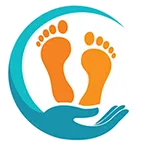FAQs About Bunions
- posted: Aug. 10, 2022
Here’s what you should know about bunions.
Worried that the hard, painful bump near your big toe could be a bunion? Our Centreville, VA, podiatrist, Dr. James Hurst, can diagnose your bunion through a simple physical exam and provide a custom treatment plan to help you manage your symptoms. Of course, if you have questions about bunions, you’ve also come to the right place.
What Is a Bunion?
Bunions are a common foot deformity that most often impacts the joint at the base of the big toe. It can take years for bunions to form, and they are progressive, which means they will also grow larger with time.
What Causes Bunions?
Genetics and faulty foot mechanics are two of the most common causes of bunions. If you have a family history of bunions, chances are good that you’ll be more likely to develop them too.
Of course, wearing high heels or shoes that put too much pressure on the bunion can also lead to imbalances in the feet, resulting in a bunion later in life. That’s why it’s always essential to leave high heels for special occasions and wear sensible, supportive and properly fitted shoes most of the time.
What Are the Signs and Symptoms of a Bunion?
When a bunion forms, an individual may notice redness, swelling or pain at the base of the big toe. You may notice a hard bump on the foot's inner side that sticks out more than the other foot. While someone can develop bunions on both feet, our Centreville, VA, podiatrist often sees bunions develop on one or the other foot. Along with a bony lump, you may notice any achy pain around the area that may swell up or become inflamed. As the bunion gets larger, you may notice that pain is more severe and occurs whenever you wear shoes or are active.
When Should I See a Doctor?
If you notice a hard, bony bump near the big toe, it’s worth turning to our Centreville, VA, team to see if it’s a bunion. It’s important to know so that we can provide you with helpful tips and advice to help slow the progression of the bunion. If you are also experiencing persistent foot pain, this warrants visiting our team for an evaluation.
How Is a Bunion Treated?
In most cases, we can help you manage your bunion symptoms through simple, conservative measures, including pain relievers, proper footwear, splinting, icing and foot exercises. We can also craft custom orthotics (shoe inserts) to provide additional cushioning and support for the feet, especially during activity. If home care isn’t providing you with ample relief, you may need to discuss other options with us.
Will I Need Surgery?
Most people with bunions won’t need surgery and can manage their pain with nonsurgical options; however, if your bunion is impacting your daily routine, causing you severe pain, affecting the shape and function of your feet and unresponsive to all other treatment options, then surgery may be necessary.
For more than three decades, our Centreville, VA, podiatrists have been treating everything from bunions to diabetic feet. If you are looking for a foot and ankle specialist who can treat your bunions, call Centreville Foot & Ankle & Sports Medicine at (703) 830-3338.
Main Location
5729 Centre Square Dr,
Centreville, VA 20120
Monday
7:30 am - 4:00 pm
Tuesday
7:30 am - 4:00 pm
Wednesday
7:30 am - 4:00 pm
Thursday
7:30 am - 4:00 pm
Friday
7:30 am - 3:00 pm
Saturday
Closed
Sunday
Closed
